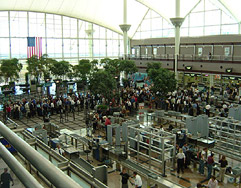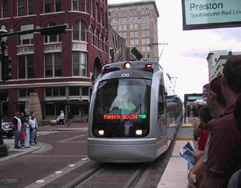Innovation NewsBriefs
Vol. 23, No. 30
Reprinted from the National Journal’s Transportation Experts Blog, “Moving the Dial on the Gas Tax,” week of November 12 (Comment by Kenneth Orski, Publisher of Innovation Briefs)
As one senior congressional aide confided to us, “I don’t see our constituents lobbying to raise the gas tax. The only people we hear from on that score are the special interest groups.” I suspect most lawmakers on Capitiol Hill share this view. Given this perception, it is almost certain that a federal gas tax increase will remain off the table in the next session of Congress.
Instead, look for the states to assume a larger share of responsibility for funding their transportation needs. An early harbinger may be the state of Arkansas whose voters just approved a sales tax increase to back a $1.3 billion bond issue to fund highway construction over the next ten years. There are also signs that some jurisdictions are willing to tax themselves to build rail transit lines.
Also, look for for a shift from funding to financing of large infrastructure projects. The shift will be fueled by a vastly expanded TIFIA lending authority —by more than 600 percent, from $122 million in FY 2012 to $750 million in FY 2013—and by a large reservoir of equity in pension funds and private infrastructure investment funds, reportedly numbering over 100 at the latest count.
The likely prospect of public and private financing replacing dwindling federal funding dominated discussion among financial practitioners at ARTBA’s Public-Private Partnership Conference in Washington on October 10-11. Participanta were encouraged to hear that 19 projects worth $27.5 billion have already submitted letters of interest for TIFIA loans in the past three months. More applications are certain to follow as it becomes clear that the Highway Trust Fund no longer can continue to be a source of capital for transportation infrastructure.
In sum, rather than hoping for an increase in the gas tax, expect greater financial participation by state and local taxpayers and a shift from funding to private and public financing as the most likely response to inadequate federal infrastructure funding in the 113th Congress— and perhaps beyond.
…
C. Kenneth Orski is a public policy consultant and former principal of the Urban Mobility Corporation. He has worked professionally in the field of transportation for over 30 years, in both the public and private sector. He is editor and publisher of Innovation NewsBriefs, now in its 22nd year of publication.
Tags: C. Kenneth Orski, Gas tax, lobbyists






 RSS Feed
RSS Feed